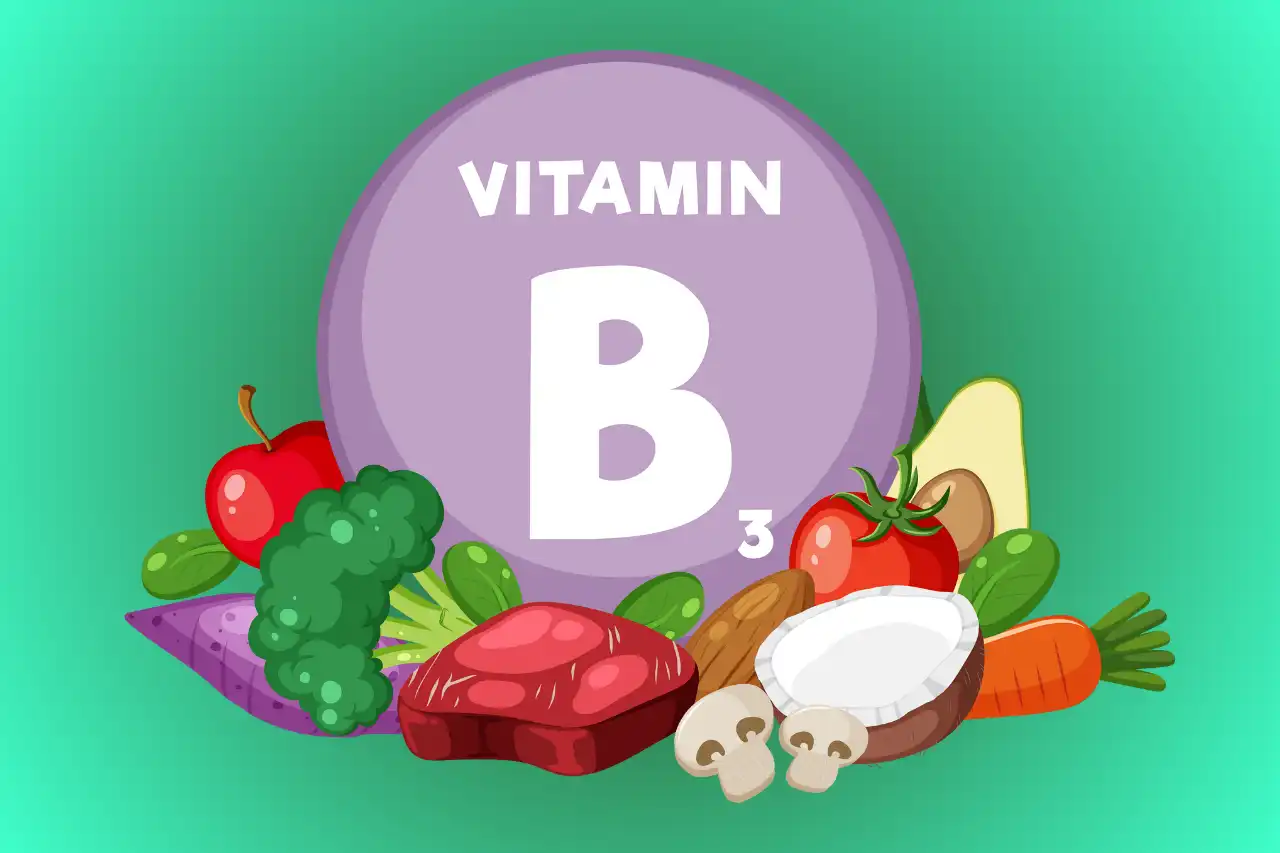-: VITAMIN – K :-
Vitamin K – The Natural Shield for Your Bones and Blood…!!!
Vitamin K (also known as Phylloquinone-K1; Menaquinone-K2 and Menadione-K3) is a fat-soluble vitamin essential for blood clotting, bone strength, and heart health.
Vitamin K1 (Phylloquinone):- It is mainly found in green leafy vegetables.
Vitamin K2 (Menaquinone):- It is mainly found in animal products and fermented foods.
Vitamin K3 (Menadione):- A synthetic form of vitamin K, once used in supplements but now largely avoided due to potential toxicity.
Daily Requirements
Men
- Teens (14-18 years) – 75 mcg per day.
- Men 18+ years – 120 mcg per day.
Women
- Women – 90 mcg per day.
- Pregnant / Breastfeeding women – 90 mcg per day.
Children
- Infant :- (2-2.5 mcg) per day.
- Children (1-13 years) :- (30-60 mcg) per day.
Function on different Organ
- Blood and Circulatory System
Details
Vitamin K1 is essential for proper blood clotting, preventing excessive bleeding from cuts or injuries. Without it, even a small wound could lead to dangerous blood loss.
- Bones and Joints
Details
It helps to activate proteins that bind calcium to bones, making them strong and preventing conditions like osteoporosis and fractures.
- Heart and Blood Vessels
Details
Vitamin K helps in preventing calcium buildup in arteries, promoting blood clotting, reducing the risk of heart disease and maintaining healthy blood circulation.
- Bones
Details
Vitamin K supports bone health by activating osteocalcin, which helps bind calcium to bones, improving strength and density. It also regulates calcium, preventing buildup in soft tissues. Adequate vitamin K may reduce the risk of osteoporosis and fractures.
- Brain and Cognitive Function
Details
Studies suggest that vitamin K may play a role in brain health, potentially protecting against cognitive decline and neurodegenerative diseases.
Symptoms incase of Deficiency
- Excessive bleeding and easy bruising.
- Slow wound healing.
- Increased prothrombin time.
- Bloody, dark, and sticky poop.
- Nosebleeds.
- Heavy menstrual bleeding.
- Blood in urine.
- Pale skin.
- Seizures.
- Weak bones, increasing the risk of fractures, seizures.
Newborns are especially at risk, which is why they often receive a vitamin K shot at birth.
Diagnosis
- Vitamin K1 (Phylloquinone) Blood Test or Vitamin K Test.
Details
It helps assess vitamin K deficiency or excess and can provide information about clotting ability and other related health conditions.
Food Sources
Veg Sources
- Leafy greens
- Spinach.
- Kale.
- Broccoli.
- Swiss chard.
- Brussels sprouts.
- Beans
- Green beans.
- Soybeans / Soybean oil.
- Vegetables
- Edamame.
- Carrots.
- Pumpkin.
- Okra.
- Fruits
- Avocados.
- Grapes.
- Blueberries.
- Pomegranate.
- Strawberries.
- Dried Figs.
- Nuts
- Cashews.
- Dried Pine nuts.
Non-Veg Sources
- Fatty fish
- Salmon.
- Mackerel.
- Dairy products
- Cheese.
- Butter.
- Milk.
- Fermented foods
- Natto.
- Kimchi.
- Fruits
- Shrimp.
- Liver (chicken, beef).
- Egg yolks.
- Pomegranate.
- Strawberries.
- Dried Figs.
What if Overconsumption
While excess vitamin K from food is not harmful, very high doses from supplements may interfere with blood thinners like warfarin. This can lead to:-
- Increased risk of blood clots.
- Reduced effectiveness of anticoagulant medications.
- Potential liver issues in extreme cases.
Vitamin K might not get as much attention as other vitamins, but it plays a crucial role in keeping our blood, bones, and heart healthy. As with all nutrients, balance is essential—getting enough without overdoing supplements is the secret to reaping the full benefits of vitamin K…!!!












